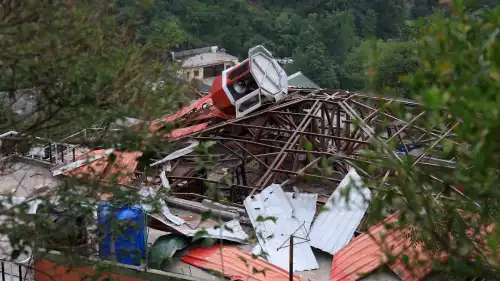India Briefs 13 UN Security Council Envoys on Key Global and Regional Issues

India Briefs 13 UN Security Council Envoys, Renews Call for Global Reforms
India has recently taken a significant diplomatic step by briefing envoys from 13 United Nations Security Council (UNSC) member states. As a result, this move underscores India’s proactive engagement in global affairs and its persistent call for comprehensive reforms within the UN system. Moreover, it comes at a time when global security dynamics are shifting, and international institutions face increasing pressure to adapt.
India’s Diplomatic Outreach to UNSC Members
To begin with, India convened the briefing in response to ongoing tensions in the Kashmir region. Specifically, the meeting aimed to clarify India’s position and ensure that the UNSC members understand the country’s perspective on regional security and terrorism. Consequently, India addressed concerns regarding cross-border terrorism, urging the global community to act decisively.
Furthermore, Indian officials emphasized that the country remains committed to peace and cooperation, but expects international recognition of the threats it faces.
Emphasis on UN Security Council Reforms
In addition to discussing regional security, India used the opportunity to reinforce its long-standing demand for reforming the Security Council. Currently, the UNSC does not reflect the geopolitical realities of the 21st century, a point stressed by India’s Permanent Representative to the UN, Ambassador Ruchira Kamboj.
For instance, she cited the inclusion of the African Union in the G20 under India’s leadership as a benchmark for meaningful reform. Thus, she urged the United Nations to follow suit and make the UNSC more inclusive and democratic. She added, “This significant step in reform should inspire the United Nations, a much older organisation, to also make the Security Council contemporary.”
Global Support for India’s Position
Notably, India’s demand is not an isolated one. The G4 nations—India, Brazil, Germany, and Japan—have been consistently pushing for a broader and fairer representation in the Security Council. Together, they argue that a reformed Council will be more legitimate, accountable, and effective.
Moreover, even top UN officials have echoed India’s concerns. Dennis Francis, President of the UN General Assembly, publicly acknowledged the slow pace of reform and appreciated India’s efforts. According to him, the calls for inclusiveness and transparency cannot be ignored any longer.
India’s Contributions to Global Peacekeeping
Apart from diplomatic lobbying, India continues to support global peace through active participation in UN peacekeeping missions. To date, it has deployed more than 180,000 troops across 43 missions. Because of this, India remains one of the largest contributors to UN peacekeeping operations.
Therefore, India believes its track record justifies a permanent seat in the Security Council. More importantly, it aligns with the nation’s vision of a multipolar, rules-based world order.
Conclusion
In summary, India’s engagement with the 13 UNSC envoys reflects a thoughtful and strategic approach to global diplomacy. By addressing both immediate regional issues and the broader structural challenges within the UN, India demonstrates its commitment to peace, justice, and global cooperation.
Ultimately, India seeks not just recognition, but a redefined role within the international community—one that reflects its growing global influence.






